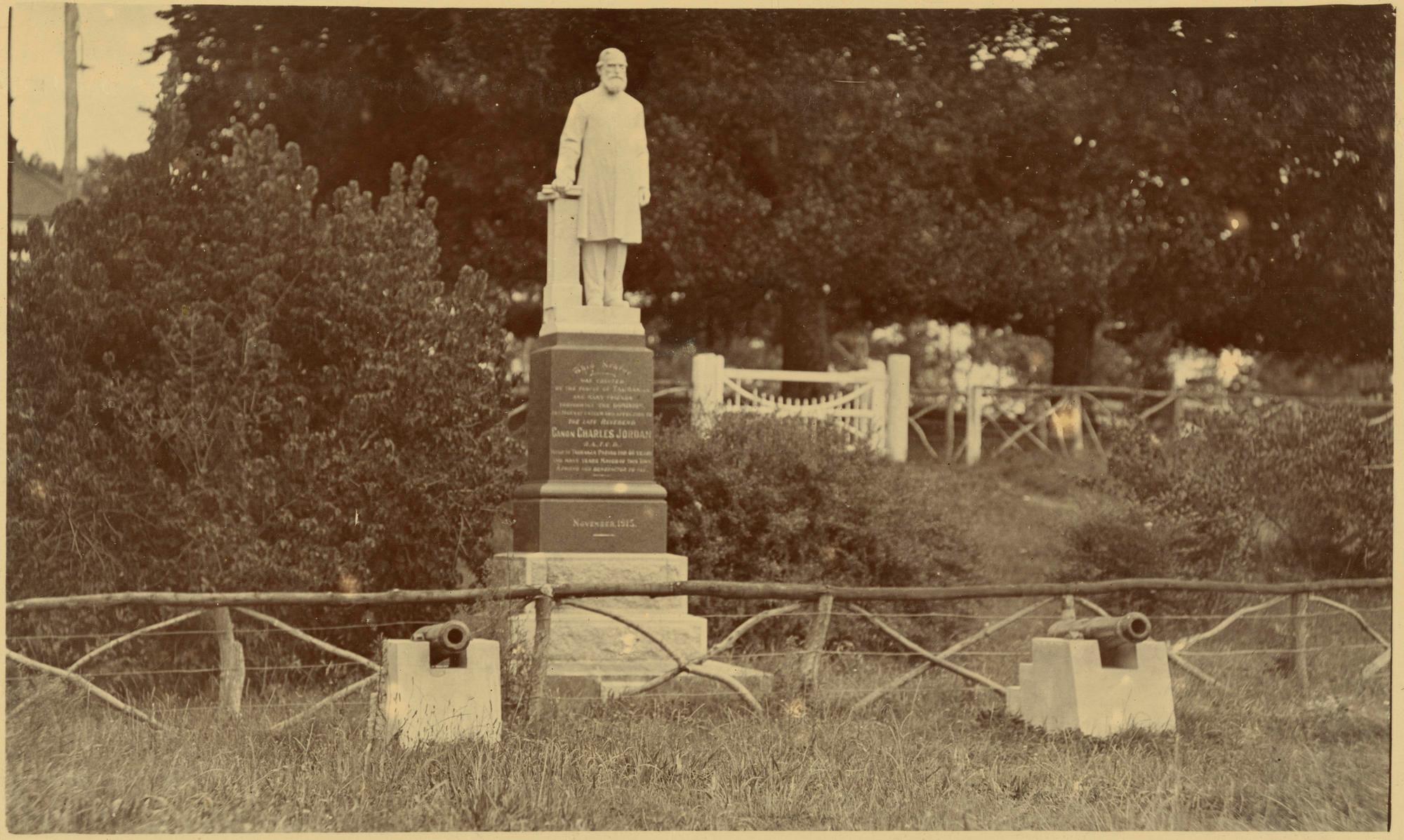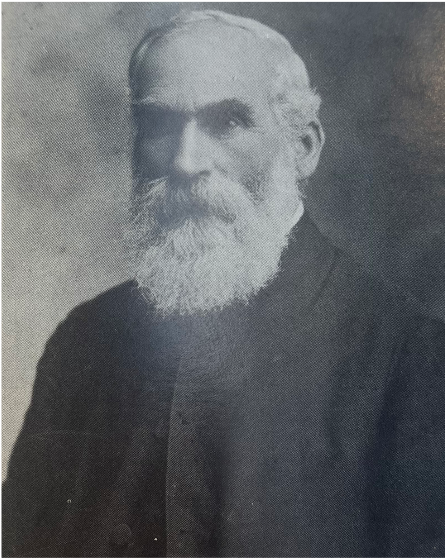Est. 1916. Canon Charles Jordan's Memorial was unveiled in The Domain on 28 January 1916. His memorial is in honour of his public service from arrival in 1873 until is death in 1912. He was engaged by Archdeacon Brown of the Church Missionary Society (CMS), to become the first Anglican Vicar in the newly established military township of Tauranga, which was built up across the Te Papa peninsular.

The Tauranga of 1873
Canon Jordan arrived into a continuum of complex and controversial land transactions between the CMS, local hāpu and The Crown. This deeply sensitive issue (still ongoing in 2023) started in 1838 with the purchase of 12.5 hectares by CMS and again in 1839 when CMS purchased a further 240 hectares up to Pukehinahina (Gate Pā). The two Deeds were both signed and objected to by the survivors of the Otamataha massacre of 1828. Reverend Brown duly noted the following: "Land acquired and is retained under a solemn Trust that it should be a applied to the benefit of the Native race & Church & that it should never be bartered or sold for the mere purpose of raising money. The Natives who gave the land for the benefit of themselves & their posterity would have just ground of complaint against us if we sold that land for a Military Settlement". The bottom line for land acquisitions was clear: any ongoing acquisitions were to carry over the CMS commitment to Māori. This was not to be.
Read more below to see how his long tenure worked out.
Map No. 10.
45 Cameron Rd,
Tauranga, 3110.
About Canon Jordan (1838, Ireland - October 1912, Tauranga) married Eleanor Anne Armstrong (1836 - 1935)
Charles was born in County Kerry, Ireland, educated at Trinity College in Dublin and served as a pastor
before being appointed to minister to the settlers of Tauranga township.

On arrival in 1873, amidst the backdrop a growing colonial town on the one hand and hāpu betrayal and displacement on the other, opposing viewpoints soon became evident. The Rev. Charles Jordan, fiery, determined, strong willed, insisting he knew best and steeped in his own Irish culture, soon butted heads with Brown and many of the locals who vehemently disagreed with his policies and forthright utterances. It became so concerning that the Bishop at the time was prevailed upon by the parishioners to offer him the new parish in Wairoa, but Charles adamantly declined.
Throughout his
Ministry Charles Jordan was to meet with strong opposition from those who disliked
his dictatorial forthrightness, those who were offended by his bullying,
stubborn or impulsive attitudes or actions. There were also times his own stipend was in arrears. His fiscal management for the parish was in question for the entire length of his tenure. He largely relied on the women of the parish to replenish funds!
Simply,
in such a young and quickly growing township where there was no one
else, he fought on in the only way he knew how with his Irish brawn, unrelenting determination, oversized personality
and stubbornness until the people just gave up the fight either through
death and evolution or through reluctant acceptance. They were never going to be
listened to. Many felt he spent far too much time on civic matters as against his spiritual duties and duties to his own family.
Charles Jordan's legacy
Charles had huge energy and
enthusiasm for what believed in. He quickly became involved in civic
affairs: elected Mayor of Tauranga on nine occasions and on most civic
committees: he was Chairman of the Town Board and served on almost all
the borough council’s public committees, including; The Domain Board,
the Tauranga School Committee, Bay of Plenty Hospice and Charitable Aid
Board, the Licensing Committee, and was influential on many others. He
was Chaplain of the New Zealand Defence Force and a Justice of the
Peace.
As the township grew so did the outreach parishes in Mt Maunganui, Te Puna, Gate Pā, Maungatapu and Ohauiti.